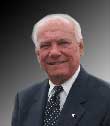
by Richard Warbrouck
President, RFFOW
The Select Committee on Pension Policy (SCPP) is a standing legislative interim subcommittee. The committee members are legislators from the House and Senate and members from employee and employer organizations, and retiree groups appointed by the Governor. The committee is empowered to meet during the interim, between legislative sessions to discuss and study retirement issues and oversee all the state retirement systems except the LEOFF II Retirement System that is independent and has its own board.
The SCPP is not a legislative session committee where legislative bills are sent for consideration and direction in the process of a bill becoming law.
The SCPP is an advisory committee and can have bills introduced. The House and Senate look to the SCPP members as pension system experts and give strong consideration to any bill that is introduced by the committee. Retirement issues can be brought to the committee by writing a letter to the committee chair explaining the issue and request that it be put on a meeting agenda or by addressing the committee members at a committee meeting to explain the issue or problem. All the letters received by the committee between meetings are read and noted to the members under constituent correspondence.
We submitted a letter to the committee to be read under constituent correspondence, giving examples and explaining the problems we are having staffing the pension and disability boards throughout the state. We were at the November meeting to testify and request that the issue be put on the December meeting agenda. We were well aware that the committee would have to hold a public hearing before they could take any action on our request. They advertised a public hearing at the December meeting to allow any city, county, fire district or organization like the Association of Washington Counties to testify for or against the proposal.
We were at the December meeting to testify in favor of an amendment to the various firefighter and law enforcement officer retirement system statutes to expand the eligibility to serve on pension and disability boards. We didn’t expect the LEOFF I Coalition to be there to testify against the amendment stating that they were not aware of any problems staffing these boards. Why would they, when they don’t work with these boards and they don’t have meetings to allow for discussion on these types of problems. It’s one thing when you have an employee group testifying for an issue and an employer group testifying against but when you have the employee groups taking different positions on an issue it can let the committee members off the hook. They are confused. Quite often they will consider the testimony, the history and the subject matter. Unfortunately, the committee chair didn’t have a quorum so no committee action could be taken.
Joyce Willms, the contract lobbyist for the Coalition, requested an amendment to RCW 41.26 the LEOFF I Retirement System, to change the requirement from a population of 20,000 to 30,000 for a city to establish a disability board. This took us by surprise as we just defeated a bill last session by city managers to do the same thing.
We found it a little strange as employee groups should be in favor of a disability board in every city regardless of population. That is why we lobbied for these boards when the LEOFF I Retirement System was established.
Joyce stated that the city manager told her that it was too expensive to create these boards. I had already explained that there is no cost in establishing these boards as the firefighter and law enforcement officers are not compensated, the city officials serve on city time and the board can meet in a city building. In the first place, why would a city manager come to Joyce when they have two representatives and a state senator i their district and the Association of Washington Cities, (AWC) to represent them? At any rate Joyce as a lobbyist should have known that the committee would not be able to schedule a public hearing on this issue as the December meeting was the last committee meeting before the 2019 legislative session is convened. It’s always been said that firefighters and police officers represent themselves the best.
I have heard a few comments regarding the recent Coalition newsletter. I certainly don’t mind criticism or negative comments if they are factual. That being the case I will always apologize or put forth a retraction. I am only going to point out a few incorrect comments in the Coalition’s newsletter and let you decide if one would want to read on or what is truth or fiction.
Opinions can be different than fact.
Joyce Willms the contract lobbyist and I believe the editor of the Coalition newsletter states that “The Retired Firefighters of Washington board consists of retired firefighters from Seattle.”
- Fact: The firefighters have seven elected Directors on the board, three Directors are retired from Seattle and four are retired from Shoreline, Sea-Tac, Puyallup and Ta
On page 3 Coalition President Bill Dickinson reports that “Mr. Warbrouck alleges that boards in the State of Washington are having a hard time finding local active or retired members to fill those positions.” “While we have not been aware of any jurisdiction complaining of this problem we do understand that as time goes by, the number of LEOFF I retirees diminishes.” President Dickinson also writes, “The particular language in the second proposal does not require the candidates to be or have been a law enforcement officer from Washington State.”
- Fact: Warbrouck, President of the Retired Firefighters of Washington did not allege. The fact is the City of Edmonds and some others can’t find people to sit on their boards. While the Coalition has “not been aware” of any problems related to pension boards the fact is there are problems and those problems will become more common in the future if the issue is not addressed. President Warbrouck’s proposal for pension board membership requires that the pension board member be a member of a Washington State Retirement System.
On pages 4 & 5 The Article titled Half Truths does not list the author.
- Fact: President Warbrouck not only served on the LEOFF I Coalition board, he and other members of the law enforcement and firefighter community founded the LEOFF I Coalition President Warbrouck did not “strike out on his” He had been President of the Retired Firefighters of Washington for years (the Coalition’s newsletter itself refers to Richard Warbrouck being the Retired Firefighters of Washington President for over 20 years) prior to his involvement with the LEOFF I Coalition.
The newsletter states: “When Warbrouck is lobbying, is he protecting the LEOFF I Retirement Fund & Benefits? Or is he lobbying to merge LEOFF 1 and LEOFF 2? It seems a bit like letting the fox guard the hen house don’t you think?
- Fact: These questions are beyond outrageous, there is nothing to suggest that President Warbrouck ever lobbied to merge LEOFF 1 and LEOFF President Warbrouck has worked tirelessly to safeguard and improve the pensions and benefits of both LEOFF 1 and LEOFF 2.
On page 11 in the article by Joe Dawson, in large bold print “states that the LEOFF I Coalition was formed in 1980 as a lobbying organization not a social organization to protect the LEOFF I Retirement.” Later in the article he reports that “The LEOFF I Coalition was formed in 2000 as a lobbying organization.” Which is it? Neither.
- Fact: The Coalition was formed in 2000 not as a lobbying organization but a neutral organization to solicit and collect donations from retired members who didn’t belong to a retiree We felt that there were some retired firefighters who would not contribute to a police organization and that there were some retired police officers who would not contribute to a retired firefighter organization. I refused to serve as President. I felt that it would be too controversial. I made a motion to elect Mark Curtis as President. My reasoning was that Mark was low key without a reputation and a nice guy, not based on his knowledge, leadership skills or experience.
When first organized the Coalition’s membership was by organization. There were about six or seven organizations. To date all the organizations have dropped out and only one remains and they describe their organization as a social organization.
The Coalition states it has an elected board but it is difficult if not impossible to determine who elected the officers and board members. The Coalition does not publish when meetings take place that allow for elections.
There are many more examples too numerous to mention. Unfortunately, our Newsletter is only mailed to our members and not those who may have received the Coalition newsletter. We can defend our record in defending, protecting and improving our retirement benefits.
- Originally LEOFF II members could vote in our pension and disability board elections. The RFFOW had legislation introduced and passed to discontinue this practice. Now only those members under the jurisdiction of the board are eligible to vote.
- We had legislation introduced and passed to allow two law enforcement officers or two firefighters to serve on a board when there is not both a fire department and a law enforcement agency under the jurisdiction of the board.
- We had legislation introduced and passed to allow LEOFF II members to serve on a board if elected by the members under the jurisdiction of the board.
